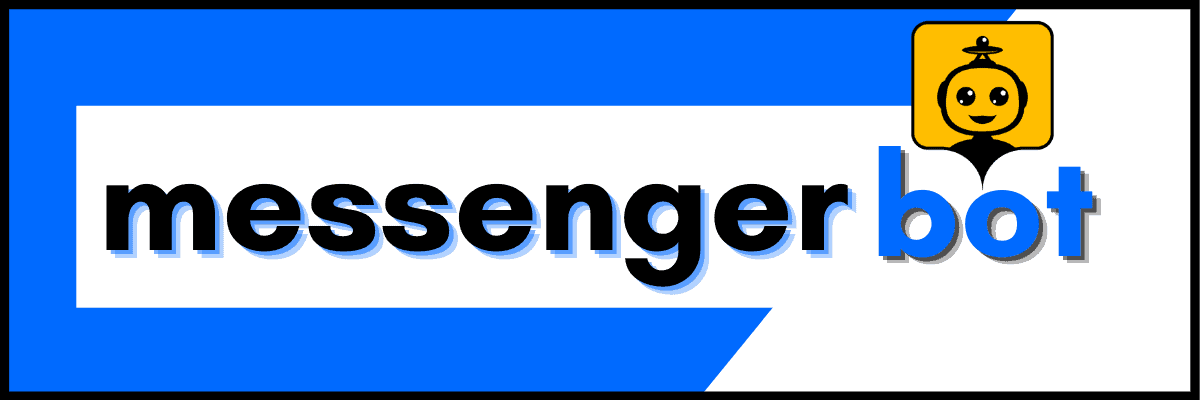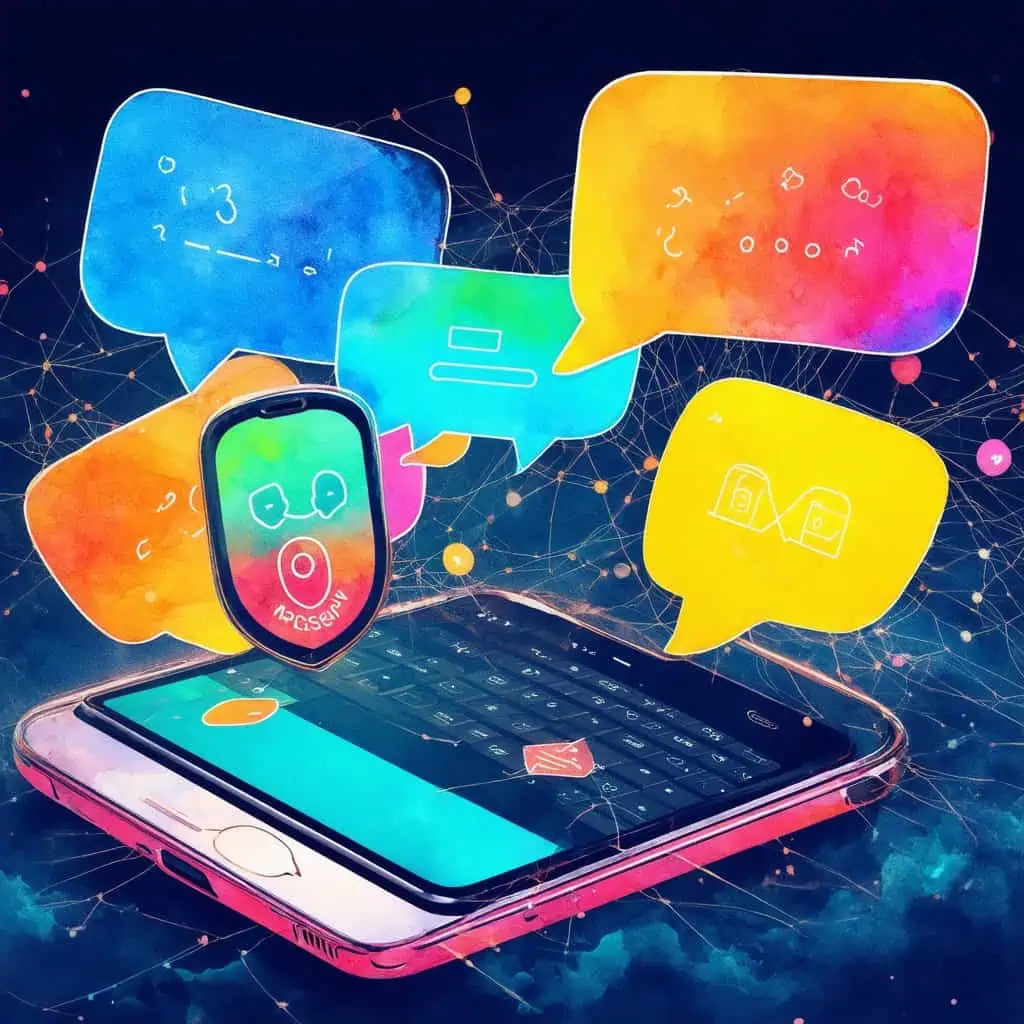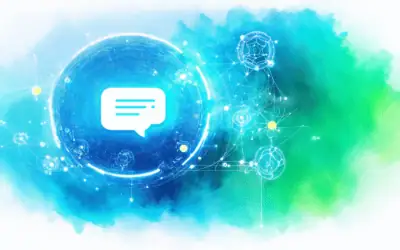Key Takeaways
- Facebook Messenger is a powerful messenger platform facilitating seamless communication with over 1.3 billion users.
- Enjoy essential features like voice and video calling, end-to-end encryption, and multi-account support for personal and professional use.
- Businesses can leverage the Messenger platform for automated responses, lead generation, and multilingual support to enhance customer engagement.
- Messenger offers a standalone app option, allowing users to connect without a Facebook account, ensuring greater privacy and accessibility.
- Robust security features, including two-factor authentication and message controls, enhance user safety on the Messenger platform.
In today’s digital age, the messenger platform has become an essential tool for communication, connecting billions of users worldwide. This article delves into the intricacies of Facebook Messenger, exploring its features, costs, and safety measures. We will begin by defining what the messenger platform is and how it integrates seamlessly with Facebook, enhancing user experience. Next, we will clarify the distinctions between Facebook and Messenger, addressing common questions such as, “Is Messenger a safe platform?” and “Can I use Messenger without Facebook?” Furthermore, we will analyze the costs associated with the messenger app, comparing free and paid features, and provide a comprehensive guide on how to download and sign up for the Messenger platform. By the end of this article, you will have a thorough understanding of the messenger platform and its role in modern communication, empowering you to make informed decisions about your messaging needs.
Understanding the Messenger Platform: Features and Functionality
The messenger platform is a widely used messaging service developed by Meta Platforms, Inc. (formerly Facebook, Inc.), designed for seamless communication between users. It allows individuals to send text messages, exchange photos, videos, stickers, audio files, and documents. Users can also react to messages and engage with various bots for enhanced interaction.
Overview of Messenger Platform Features
Key features of Facebook Messenger include:
- Voice and Video Calling: Messenger supports high-quality voice and video calls, enabling users to connect in real-time with friends and family across the globe.
- Multi-Account Support: The standalone Messenger app allows users to manage multiple accounts, making it convenient for personal and professional communication.
- End-to-End Encryption: For enhanced privacy, Messenger offers end-to-end encryption for conversations, ensuring that only the sender and recipient can access the messages.
- Interactive Bots: Users can interact with Messenger Bots, which provide automated responses and services, enhancing user experience through various functionalities such as customer support and entertainment.
- Gaming Integration: Messenger also features games that users can play with friends, adding a social gaming aspect to the platform.
According to a report by Statista, Messenger had over 1.3 billion monthly active users as of 2021, highlighting its significance in the digital communication landscape. The platform continues to evolve, incorporating new features and updates to meet user demands and enhance security. For more detailed information, you can refer to the official Messenger page on Meta’s website.
How Messenger Integrates with Facebook
The integration of Messenger in Facebook enhances user experience by allowing seamless communication within the social media platform. Users can easily switch between their Facebook feed and Messenger, making it convenient to chat without leaving the app. This integration also enables users to receive notifications for messages directly within their Facebook interface, ensuring they stay connected with friends and family.
Additionally, the ability to share content from Facebook directly to Messenger facilitates a more interactive experience. Users can send posts, photos, and videos to their friends through Messenger, enhancing the social aspect of communication. This synergy between Messenger to Facebook not only streamlines interactions but also encourages users to engage more frequently with both platforms.
Understanding the Messenger Platform: Features and Functionality
The messenger platform offers a variety of features designed to enhance communication and streamline interactions. With its robust functionality, businesses can leverage the platform to improve customer engagement and optimize their messaging strategies. Below, we explore the key features of the messenger platform and how it integrates with Facebook.
Overview of Messenger Platform Features
The messenger platform is equipped with several powerful features that cater to both personal and business communication needs. Key functionalities include:
- Automated Responses: The platform utilizes AI-driven technology to provide real-time, automated responses to user inquiries, enhancing engagement across social media platforms like Facebook Messenger and Instagram.
- Workflow Automation: Businesses can create dynamic automated workflows triggered by specific user behaviors, facilitating tailored interactions that improve user satisfaction.
- Lead Generation: The messenger platform helps businesses generate leads through interactive and engaging messaging strategies.
- Multilingual Support: This feature allows businesses to communicate in various languages, reaching a diverse global audience.
- SMS Capabilities: The platform extends its functionality to mobile devices, enabling SMS broadcasting and sequence messaging.
For a deeper dive into these features, check out our Mastering Facebook Messenger guide.
How Messenger Integrates with Facebook
Messenger is intricately linked with Facebook, enhancing the user experience by allowing seamless communication. Users can send messages directly from their Facebook profiles, making it easy to connect with friends and family. However, Messenger operates as a standalone app, which means:
- Users can access Messenger without a Facebook account, broadening its accessibility.
- Messenger focuses on private communication, while Facebook emphasizes social interactions and content sharing.
- The user interface of Messenger is designed specifically for messaging, featuring chat threads and multimedia sharing, in contrast to Facebook’s more complex interface.
For more insights on how Messenger enhances user experience on Facebook, visit our page on Best Chatbot Mobile Apps.
How Much is the Messenger Platform?
The Messenger platform, developed by Meta, is a free messaging service that allows users to communicate through text, voice, and video. This accessibility makes it a popular choice for both personal and business communications. However, businesses often seek to understand the costs associated with utilizing the Messenger platform effectively, especially when integrating advanced features like chatbots and automation tools.
Pricing Models for Businesses Using Messenger
For businesses looking to leverage the Messenger platform, there are various pricing models available. While the basic use of the Messenger app is free, companies may incur costs when implementing advanced features such as Messenger Bots. These bots can automate responses and enhance customer engagement, providing a significant return on investment. Pricing typically varies based on the complexity of the bot and the specific features required. For example, businesses can choose from subscription-based models or pay-per-use options depending on their needs.
Additionally, integrating Messenger with other platforms or utilizing third-party services may also involve fees. It’s essential for businesses to evaluate their requirements and budget accordingly to maximize the benefits of the Messenger platform.
Free vs. Paid Features of the Messenger App
The Messenger app offers a range of features that cater to both free and paid users. Free features include basic messaging capabilities, voice and video calls, and the ability to connect with Facebook friends seamlessly. However, businesses can unlock additional functionalities by opting for paid features, such as advanced analytics, automated customer service through Messenger Bots, and enhanced marketing tools.
Utilizing the Messenger platform effectively means understanding which features align with your business goals. For instance, businesses can enhance customer service and engagement through automated responses, which are part of the paid offerings. This strategic investment can lead to improved customer satisfaction and loyalty, making it a worthwhile consideration for any business aiming to thrive in the digital landscape.
Evaluating Safety on the Messenger Platform
When it comes to choosing a messaging platform, safety is a paramount concern for users. The Messenger platform offers a range of security features designed to protect user data and enhance privacy. Understanding these features is essential for anyone looking to engage with the Facebook Messenger app securely.
Security Features of Facebook Messenger
Facebook Messenger employs several security measures to safeguard user interactions:
- End-to-End Encryption: While not enabled by default for all conversations, Messenger offers end-to-end encryption through its “Secret Conversations” feature. This ensures that only the sender and recipient can access the messages, providing a higher level of privacy.
- Two-Factor Authentication: Users can enable two-factor authentication (2FA) to add an extra layer of security to their accounts. This requires a verification code in addition to the password when logging in.
- Message Controls: Users have control over who can send them messages, allowing them to filter out unwanted interactions and enhance their overall safety.
- Reporting and Blocking Features: Messenger allows users to report suspicious accounts and block unwanted contacts, helping to maintain a secure communication environment.
Comparing Messenger Safety with Other Platforms
While the Messenger platform provides robust security features, it’s essential to compare its safety with other messaging apps. For instance, apps like Signal and Threema are often highlighted for their superior privacy measures, including open-source code and minimal data collection. In contrast, while Messenger offers convenience and integration with Facebook, users should remain aware of its data practices and consider their privacy preferences when choosing a messaging platform.
For those interested in enhancing their messaging experience, exploring options like Messenger Bot can provide additional functionalities while maintaining user engagement. Always evaluate the security features of any messaging platform before use to ensure your communications remain private and secure.
Can I use Messenger without Facebook?
Yes, you can use the Messenger platform independently of Facebook. This flexibility allows users who prefer not to maintain a Facebook account to still enjoy the features of the Messenger app. Here’s how to get started and the benefits of using Messenger as a standalone application.
Steps to Sign Up for Messenger Without Facebook
- Download the Messenger app from the Messenger Homepage or your device’s app store.
- Open the app and select the option to sign up without a Facebook account.
- Enter your phone number to receive a verification code.
- Input the verification code to confirm your phone number.
- Set up your profile by adding your name and a profile picture.
Once you complete these steps, you can start using Messenger to chat with friends and family, even if they are on Facebook.
Benefits of Using Messenger as a Standalone App
- Direct Communication: You can communicate directly with your contacts without needing a Facebook profile, making it ideal for those who prioritize privacy.
- Access to Features: Enjoy all the features of the Messenger platform, including video calls, group chats, and the ability to send photos and videos.
- Enhanced Privacy: Using Messenger independently allows you to manage your privacy settings more effectively, as you won’t have to deal with Facebook’s broader data collection practices.
- Integration with Other Services: Messenger can still integrate with various services and apps, allowing you to enhance your communication experience.
Can I use Messenger without Facebook?
Yes, you can use the messenger platform without a Facebook account, but there are specific steps involved. Here’s a comprehensive guide:
- Create a Facebook Account: Initially, you must create a Facebook account to access Messenger. This is a prerequisite as Messenger is integrated with Facebook’s platform.
- Deactivate Your Facebook Account: After setting up your Facebook account, you can choose to deactivate it. This allows you to maintain access to Messenger while your Facebook profile is inactive.
- Log in to Messenger: Use your Facebook account credentials to log into Messenger. Once logged in, you can utilize Messenger’s features without needing to engage with Facebook.
- Deactivated Except Messenger Account (DEMA): By deactivating your Facebook account, you will have a DEMA, which enables you to continue using Messenger for chatting, sending photos, videos, and other functionalities.
- Transition from Messenger-Only Account: If you previously had a Messenger-only account (which was possible before 2019), you will need to update your account to a DEMA to keep using Messenger.
- Limitations: Note that since December 2019, you can no longer create a Messenger account using just your phone number. Therefore, a Facebook account is essential for accessing Messenger.
- Messenger Features: With Messenger, you can chat with friends, create group chats, send multimedia messages, and utilize features like video calls and games.
For more detailed information, you can refer to the Facebook Help Center and other authoritative sources like AVG AntiVirus for guidance on account management.
Steps to Sign Up for Messenger Without Facebook
To sign up for the messenger app without a Facebook account, follow these steps:
- Download the Messenger App: Start by downloading the Messenger app from the Messenger Homepage or your device’s app store.
- Open the App: Launch the Messenger app on your device.
- Select “Create New Account”: When prompted, choose the option to create a new account.
- Enter Your Phone Number: Input your mobile phone number to receive a verification code.
- Verify Your Number: Enter the verification code sent to your phone to confirm your identity.
- Set Up Your Profile: Follow the prompts to set up your profile, including your name and profile picture.
Once these steps are completed, you can start using Messenger independently of Facebook, enjoying features like messaging, video calls, and more.
Messenger Platform Sign Up
Signing up for the messenger platform is a straightforward process that allows users to connect with friends and family seamlessly. Whether you are using the messenger app on your mobile device or accessing it via a web browser, the sign-up process is designed to be user-friendly and efficient.
Creating Your Messenger Account: A Step-by-Step Guide
- Download the Messenger App: If you haven’t already, download the Messenger app from the App Store or Google Play Store.
- Open the App: Launch the app on your device.
- Sign Up: You will be prompted to enter your phone number. This number will be used to create your account.
- Verification: After entering your phone number, you will receive a verification code via SMS. Enter this code to verify your account.
- Set Up Your Profile: Once verified, you can set up your profile by adding your name and profile picture.
- Start Messaging: You are now ready to use the messenger platform to connect with friends and family.
Benefits of Signing Up for Messenger
- Instant Communication: The messenger app allows for real-time messaging, making it easy to stay in touch.
- Multimedia Sharing: Users can share photos, videos, and voice messages, enhancing communication.
- Integration with Facebook: If you have a Facebook account, linking it to Messenger enhances your experience by allowing you to connect with your Facebook friends directly.
- Group Chats: Messenger supports group conversations, making it easy to communicate with multiple people at once.
- Access to Bots: Engage with various bots for entertainment, customer service, and more, enriching your messaging experience.






